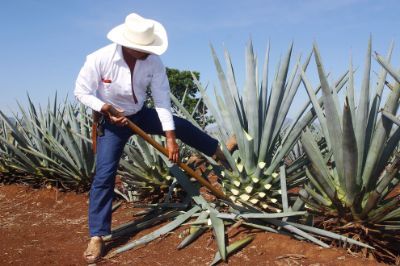Tequila has been a beloved spirit around the world for centuries. The drink originated in the Mexican state of Jalisco, where it is still produced today. Tequila dates back to the 16th century when the indigenous people of Mexico began distilling agave, a plant native to the region, into a fermented beverage. The Aztecs had already been making a fermented beverage from the agave plant for centuries, but it wasn't until the 16th century that it was distilled into what we now know as Tequila.
In the early 1700s, the first commercial Tequila distillery was established in the town of Tequila, Jalisco. It was founded by a Spanish nobleman named Don Cenobio Sauza. He named the distillery "La Rojeña" which translates to "The Red One". The name referred to a red volcanic stone used to build the distillery. Don Cenobio was the first to produce and export Tequila outside of Mexico.
Tequila quickly gained popularity amongst the locals and soon people from all over the world were enjoying the unique spirit. In 1873, the first Tequila regulations were established by the Mexican government, which created the Denomination of Origin for Tequila. This ensured that all Tequilas produced in the region would be of a certain quality and that the spirit could only be produced in certain Mexican states.
In the early 1900s, the first Tequila brand, Jose Cuervo, was established. This company was the first to mass-produce Tequila and has remained one of the most popular Tequila brands today.
Today, Tequila is enjoyed in bars and restaurants around the world and is an important part of Mexican culture. It is still produced in the same small towns in Jalisco, and the regulations set by the Mexican government remain in place to ensure the quality of Tequila. Whether you are a Tequila connoisseur or just enjoy the occasional margarita, it's hard to deny the long and interesting history of this unique and beloved spirit.

